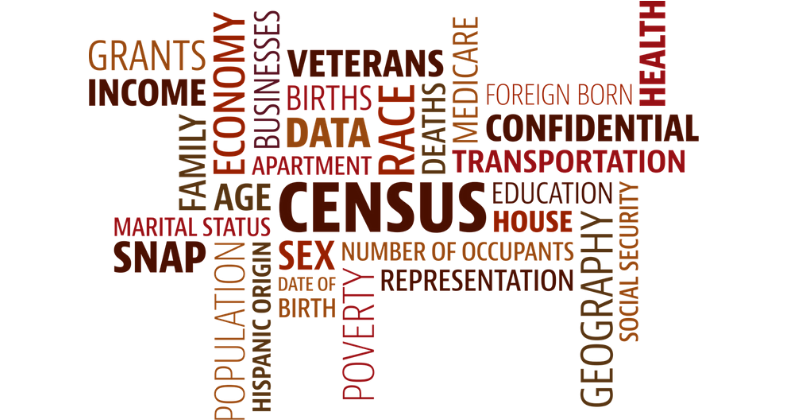
The United States Supreme Court heard arguments on April 19, 2019, about adding census citizenship questions to the upcoming 2020 Census questionnaire. The US Census Bureau is required by law to count the country’s total population every 10 years. The Trump administration wants the citizenship question added to the Census because for the next decade, population counts from the Census will determine how many congressional seats and electoral votes each state will get.
A citizenship question was included in the Census for over 100 years but removed in 1960 to increase accuracy in census responses. When requesting the question be returned to the Census, the Trump administration stated this information is vital to enforce the 1965 Voting Rights Act.
If the question is included and immigrants avoid taking the Census the result could be a major undercount of the population. This would not only reduce the number of congressional seats and electoral votes in states with large populations of immigrants, it will also affect the federal funding of services in states with large immigrant communities.
Opponents of the law believe the question is politically motivated. There have been many lawsuits to prevent the questions being included. New York, California and Maryland federal judges at U.S. district courts have already issued rulings to block the question, “Is this person a citizen of the United States?”
According to NPR,
Based on their questions during oral arguments at the high court, the justices appear ready to vote 5-4 to allow the Trump administration to add the hotly contested questions to forms for next year’s national headcount.
The Supreme Court may release its decision as soon as June on whether the citizenship question will be allowed, months before the Census is to get started.
The Census does not ask whether non-citizens are legally in the country, and the Census Bureau is required by law to keep responses confidential. However, many immigrants fear that their answers to this information will be turned over to immigration authorities and be used to deport them or people in their family.
According to The New York Times, “the United States is home to about 22 million noncitizens — roughly 7.5 percent of the population — and about half that number are undocumented.” Immigration experts in states with large immigrant populations like Texas or New York are closely monitoring the Supreme Court’s ruling.
In Illinois, immigrants who avoid the Census due to fear of deportation would impact the state population and could result in fewer Congressional seats. The Chicago Tribune reports,
In Illinois alone, immigrants make up about 7 percent of the state’s population, ranging from those on their way to becoming naturalized citizens to others living here illegally, said William Frey, a demographer with the Brookings Institution.
Chicago immigration lawyer Mario Godoy says an accurate population count is important to protect everyone’s rights and services, but local immigrants fear repercussions from the citizenship question based on their own experiences.
As an immigration lawyer I want to tell my clients to trust our legal process. They are legally required to answer Census questions. But based on their experiences with Homeland Security, ICE, DACA and just from watching the nightly news, my clients have lost trust in the legal system. I want to protect my clients’ rights and protect all our rights and benefits as US citizens.
The attorneys at Godoy Law Office work with you to evaluate your immigration status and guide you in your journey to becoming a US citizen. If you need help with an immigration issue, please contact our office at 312-635-4029.




